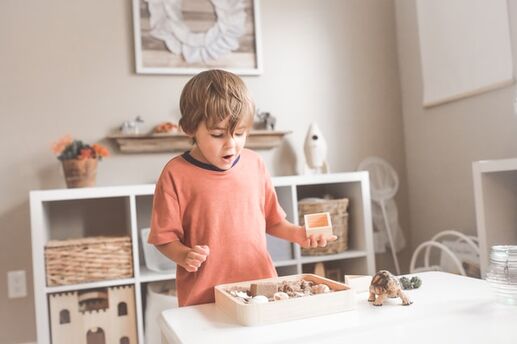Reaching Milestones: When Babies Roll Over
Your baby rolling over is her first way of moving around on her own, and it’s just a preview of the exciting motor developments soon to come, like crawling, standing, and walking. Find out when your baby will take her first roll, plus how to keep your little tumbler safe.
When will your baby roll over?
She could roll herself from back to front as early as 3 months, though she might not be able to reverse the move from front to back until about 6 months of age. Anything in between is considered normal motor development.
If your baby hasn’t started rolling yet, watch for these signs, which indicate that she could start very soon: First, she’ll begin using her arms to arch her back and lift her chest. She’ll also start to rock on her stomach and kick her legs, and she might even try to make little swimming motions with her arms.
This is a very exciting time for both you and your baby, as she puts all her energy into these efforts and you encourage her. When she finally succeeds, it will be a thrilling and strong bonding moment for both of you.
If you want to help encourage your baby to roll over, there are plenty of things you can do:
1. Use the power of eye-catching baby toys. You can place a few of your baby’s favorites just out of reach to encourage her to move toward them.
2. Remember tummy time. By spending time on her stomach, your baby will work to push on her arms and arch her back to lift her head and chest. These are important motor development skills and muscle-building activities that eventually lead to rolling.
3. Be enthusiastic! Your baby will respond to the excitement in your voice and your happy expression when she does something right, so stay upbeat.
All these movements strengthen your baby’s body, preparing her to roll over for the very first time. It’s your job to be ready when she does, so always keep a close eye on her when she’s on a high surface, like the bed or her changing table. Otherwise, she might try to scoot right off.
Once your baby rolls over for the first time, there’s no stopping her! Rolling is usually the precursor to crawling -- but some babies love rolling so much, they opt to do it (or other movements like scooting or slithering) over crawling.
Finally, an important note about motor development: Most babies start rolling by the time they reach the 6-month mark. If yours hasn’t, check in with your pediatrician to make sure everything’s on track. Every baby develops at her own speed, but double-checking with the doctor and sharing your concerns is always a good idea.
Photo by João Victor Fonseca on Unsplash





